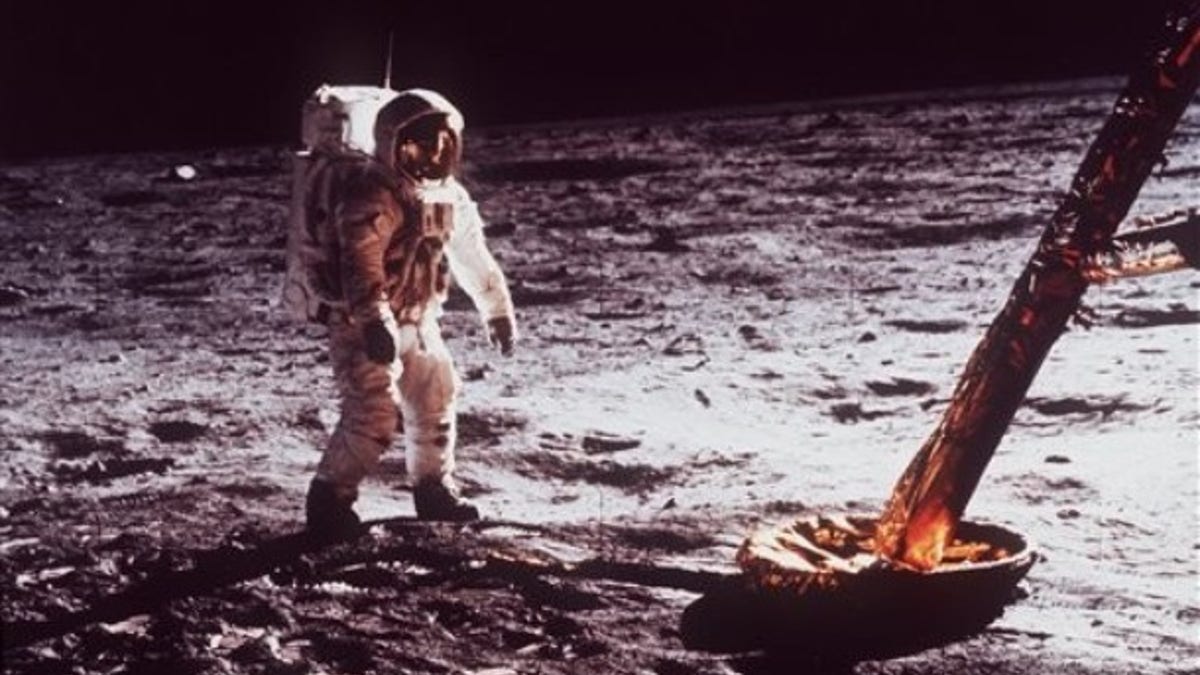
AP
In September of 1962, in a speech at Houston's Rice University, President John F. Kennedy set the tone for the decade.
Reminding the nation of the words of William Bradford who, speaking in 1630 at the founding of the Plymouth Bay Colony, said that "all great and honorable actions are accompanied with great difficulties," Kennedy announced that America would put a man on the moon, and return him safely to Earth by the end of the decade.
Calling forth Bradford's idea of "answerable courage," Kennedy defined for the nation the reason for this undertaking, saying the conquest of space "deserves the best of all mankind, and its opportunity for peaceful cooperation many never come again. But why, some say, the moon? Why choose this as our goal? And they may well ask why climb the highest mountain? Why, 35 years ago, fly the Atlantic? Why does Rice play Texas?
"We choose to go to the moon. We choose to go to the moon in this decade and do the other things, not because they are easy, but because they are hard," Kennedy said.
Consider the 60s. Globally, America had to deal with the space race, the conflicts in Southeast Asia, the missile crisis, the Sino-Soviet split, France leaving NATO and the rise of the non-aligned nations. At home we faced anti-war protests, the struggle over civil rights, the public murders of three prominent and important men, unrest on college campuses, cities in flames, the sexual revolution, the rise of the welfare state and the war on poverty.
The 1969 moon landing, now 40 years in the past, was the culmination of almost ten years worth of hard things, things that were the result of America's ambition and desire to lead the world.
It was the end of them too -- at least for a while.
The glory of the Kennedy mystic gave way to the pedestrian values of the Nixon administration. The competition to best the Russians was replaced by "detente" as "Peace with Honor" became a poor substitute for victory in Southeast Asia. And at home the values of the "Me Generation" overtook "The Best and the Brightest" as the dominant cultural ethos. Hard work was replaced by easy living, as easy sex, easy access to drugs and easy money became all too readily available, with many America's embracing at least part of Timothy Leary's dictum to "Turn On, Tune In and Drop Out."
Throughout the 1970s America ran and hid from its responsibilities to the world and to itself. Soviet aggression in Africa and Asia were met with weak protests while at home the oil shocks and stagflation ruined our personal economy. America dropped out.
Looking back forty years, we can today see the moon landing in its proper place: as the greatest achievement of the post-war generation in the national rally that began at the end of World War II. Looking forward, we need to revive that spirit of adventure, the excitement of discovery that has us reaching for the stars, out there and here at home. To recognize, finally, that the only limits to our achievements are the ones we place upon ourselves.




















